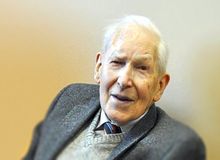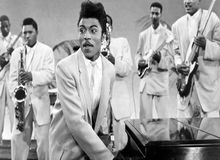


Packer used to say that his conversion had not been spectacular. The preacher showed him at the end of the sermon that, to be able to attend the party, he had to come to Christ.

Miguel Delibes’ last book, The Heretic (1998), is about the sixteenth century Reformation in Valladolid. Where did Delibes get his information? What was his relationship with Protestants? And what were his beliefs?

Nobody can doubt that Little Richard’s faith was genuine. He may not seem exemplary and even contradictory, but his faith could not be more authentic.

Thomas Mann takes us to the strange beauty of a misty Venice and the devastation brought on by a cholera epidemic in 1911.

Like many believers, Philip Roth feels bewildered at the relationship that the Bible establishes between plagues and God’s judgement. But can we apply this to epidemics nowadays?

The cinema shows many examples of viruses that affect humans, producing devastating epidemics that remind us of our fragility and vulnerability.

A review of the films “Richard Jewell” and “An Officer and a Spy”.

Journalist and theologian José de Segovia reflects on the evolution of culture in the last decade, how it has affected evangelical Christians, and what new challenges they face.

In the winner of the last Golden Globes, “1917”, Sam Mendes draws on his grandfather’s experience of the First World War.

The Unamuno Prize was given to philosopher and university professor José Luis Villacañas, for “his brave defense of the memory of Protestantism as an integral part of the history of Spain”.

Todd Philipps' film is an adult exploration of the anatomy of evil, closer to a Kafkaesque tragedy or to Dostoyevsky’s novels than to the children’s universe of comic book superheroes.

This is not a horror story, but a story about horror.

The ending of Asterix books reminds us the Story par excellence, the Bible - banquets point to our yearning for a happy ending.

Many crime fictions happen in the past, as if by looking back, we find a way of diagnosing the traumas of the present.

This popular culture icon is nowadays described to us as a sad and vulnerable figure, timid and unsure – a far cry from the frivolous, joyful and radiant star that she was for her contemporaries.

The main thing that J.R.R. Tolkien inherited from his mother was the Roman Catholic faith. With the help of a priest, he was able to gain access to higher education.

Books, series and films have left us with striking testimonies of those who, while representing Christianity, wonder where their faith is. An article about three of the most acclaimed stories of 2018.

We judge our experiences in the light of the Bible, not the other way around. That is the difference between evangelical faith and mysticism.

God has given a certain dignity to work, making it something that we cannot live without. However, if we look to our work to find meaning in life, we will end up with an empty heart.

The conflict between God and Satan is not a fight between two powers with equal chances of winning.

Christianity departs from any kind of moralism. What is good news for Duch, is bad news for those who consider themselves too be good and righteous.

“Goodbye Christopher Robin” tells of the unavoidable distance between parents and their children, and the nostalgia for a lost home.

For Paul Schrader’s characters, salvation is often synonymous with self-redemption. Atonement for guilt is sought through violence, which, far from being divine, is profoundly human.

What today we call Satanism is really just a form of atheism, born out of the rejection of an all-too-familiar religion.

We cannot be what we want to be, because we are not infinite creators but finite and dependent creatures.

Las opiniones vertidas por nuestros colaboradores se realizan a nivel personal, pudiendo coincidir o no con la postura de la dirección de Protestante Digital.